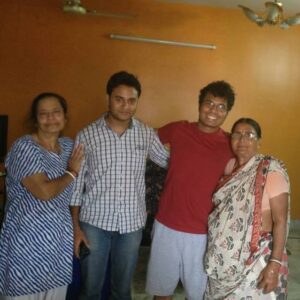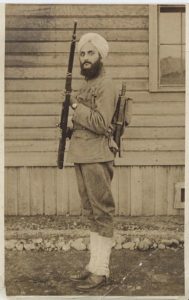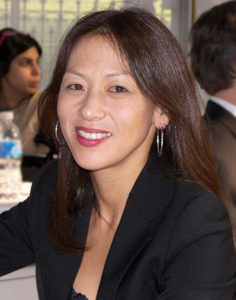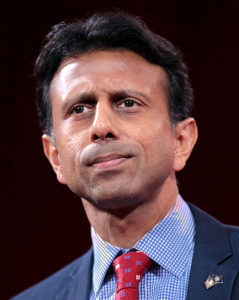 By Sudip Bhattacharya
By Sudip Bhattacharya
AsAmNews Staff Writer
Does Asian Privilege exist in the U.S.?
The simple answer: Yes.
However, the more complex one is below.
My parents emigrated from India in 1987. They settled in New York City and my dad started a printing business. Unfortunately, he had to shut it down in less than a year. Thankfully, my parents had a support system which they could rely on and my father eventually became an engineer. We all lived under the same roof, including aunts, uncles, and grandparents. Sometimes, my family would learn about new immigrants who were also Bengali (from West Bengal or Bangladesh) and since they understood how bewildering the city could be, they’d let them stay with us for the time being.
I was born in Queens in ’88, and immediately nicknamed by my grandfather as the “American.” My mother taught me how to read, and made sure I knew names like Martin Luther King Jr. and Abraham Lincoln. She would constantly quiz me on who was the president, the VP, the state and zip code we lived in, what was the address of our street, and basically, anything and everything that would make me blend into the curriculum. I also spent hours learning how to spell, how to write cursive, and often, taken to the library, on days when we’d go shopping and I couldn’t bear looking at anymore heads of lettuce.
The neighborhood we lived in was diverse, but fraught with prejudice and racism. Even though many of our neighbors were Guyanese and Hispanic, we still endured hateful episodes from Eastern Europeans who lived on the corner of our block. Despite what we shared, such as our immigrant parents, we would always end up arguing and fighting each other. They’d harass us, yell at us, and call us names, do anything to devalue who we were. When looking back, I am disappointed that we couldn’t form solid bonds of friendship and understanding. However, at that time, it was difficult for them not to see us as simply “Brown” or even as “terrorists” while we viewed them as White people who hurt us too much to ever be trusted.
When I got older, we moved to the New Jersey suburbs. I didn’t complain. I too wanted to know what it felt like to have green lawns, safe streets where I could bike without getting run over by a car, and of course, cable TV. Suddenly, it was just me, my mom and dad living the so-called American Dream, and soon, I got used to driving everywhere and to spending afternoons walking around with friends, without ever thinking I could be lost.
But 9/11 reminded us that despite the house, the car, and our middle-class lives, we were always susceptible to the whims of the nation. I push back against the notion that prior to the attacks on the World Trade Center, brown South Asians were always accepted. However, after the Twin Towers fell, our alienation and persecution was elevated. We could feel it in the air, that raw sense of anger aimed directly at us, for things we never did. Whether we were ordinary Muslims, Sikhs, or Hindus, living here for most of our lives, when the War on Terror was officially declared, we became fodder for the machine. Sikh men were being shot. White men were chasing down Muslim Americans. It was best to keep our heads low, as neighbors taunted us, and as complete strangers felt it was imperative to mock and shame my parents and I and all those who looked like us.
When my parents came to the U.S., they were well-aware of the racism. My parents understood the dynamics of being Brown and educated, that you could be perceived as a benefit in one moment, and in another, be cast as the villain. According to my father, they became Democrats because they read the newspapers and watched the news, and learned that the Republican Party was filled with mostly White faces. In fact, they noticed that the Democratic Party had Black and Brown people running for it, and voting for it as well, and so, they too turned into lifelong supporters. From them, I understood the importance of aligning myself with other POC and to stick up for one another, not because of the fear that if I don’t I could be next to suffer, but because we are all in this together, and it would be selfish of me not to raise my voice high.
Ultimately, I was able to attend college, and study what I wanted as well. I grew my friends’ circle as I went off to D.C. to become a journalist. I am now working toward my PhD in Political Science. I am blessed to have the privilege to follow my aspirations, while other POC struggle to make it.
I know I am one among millions in this country who identify as Asian American, but I do feel that the story I just described to you about our family is emblematic of a much larger experience. We are, as explained, a sea of half-truths, and contradictions, as well as troubled realities and pain. We are joy and sadness, and like so many of our fellow Americans, we exist on multiple planes.
We are a minority group that has also felt the effects of White Supremacy and how it can bend people into categories. For decades, Chinese immigrants and those who settled in the U.S., faced persecution. While many sought fortune during the Gold Rush, they were often labeled as “coolies” and were the targets of discriminatory laws and extremism. Like other non-white Americans, Chinese weren’t allowed to give testimony in cases where White citizens were involved. They were also unfairly perceived as cheap labor and competition, leading to labor groups to attack and harm them based on this gross assumption. An example of this would be in the winter of 1858-1859, about which historian Erika Lee writes in The Making of Asian America: A History, where “armed mobs forced Chinese out of various campsites and towns,” dropping the number of Chinese working in Shasta County from 3,000 to just 160 at the end of the decade. A few years later, “seventeen Chinese were lynched in Los Angeles […]” after a White mob “dragged Chinese out of their homes while others hastily built gallows downtown to hang the victims.”
South Asian Americans too were considered outsiders. Many worked in lumber, railroads, and in agriculture and called “rag heads” and even those who were Muslim or Sikh, as

Roger Daniels explains, were reduced to the derogatory “Hindoo” label. South Asians received lower wages than Whites and other Asians. Similar to what happened to Chinese immigrants, South Asians were also victims of mob violence, such as in Bellingham, Washington in 1907, where White workers, dragged over 200 South Asians from their homes and even streetcars, locking them up in jail (also cited by Lee). In 1923, the Supreme Court decided in United States vs. Bhagat Singh Thind that South Asians couldn’t become naturalized citizens. “The children of English, French, German, Italian, Scandinavian, and other European parentage, quickly merge into the mass of our population and lose the distinctive hallmarks of their European origin,” Justice Sutherland declared, “On the other hand, it cannot be doubted that the children born in this country of Hindu parents would retain indefinitely the clear evidence of their ancestry.”
However, post-1965, when immigration was liberalized and all bans against Asians were lifted, the laborers of the past era gave way to a more professional class. Now, it was the Asians with degrees finding their space in the states, who became engineers, doctors, and members of the white-collar world. According to Pew, close to half of Asian Americans have at least a bachelor’s degree, as compared to just 28 percent of all Americans. Also, Asian Americans have the highest median household income at $66,000, compared to all other ethnic/racial groups, including White.

The “success” of Asian Americans led to the birth of the “model minority.” Even as recent as last year, writers like Nicholas Kristof, who are considered more sensible than others, detailed how Asian Americans were special and worked harder than everyone else. His article wasn’t as awful as others in the past, but it still conflated the Asian American experience and repeated stereotypes. Even Asian Americans themselves have bought into this narrative that anyone who has a strong enough work ethic can make it. Amy Chua is an example. Chua has claimed that there is an Asian way and an American way of raising successful children, implying that somehow, being Asian American isn’t possible and that civilizations are easily demarcated, when in fact, societies and cultures, as Edward Said and Vijay Prashad have made clear, mix and intermingle. However, Asian Americans who feel pride in being the “model minority” ignore how this label is used to denigrate and shame Black and Latino Americans. By comparing them to us, White America claims that there is no such thing as discrimination and that since Asians are earning more and doing better, then so can everyone. It is a lie perpetuated by Whites and Asians alike. Political leaders like Bobby Jindal and Nikki Haley prove that by accepting the “racial bribe” (a phrase coined by Deepa Iyer), they can endear themselves to a White conservative audience and as long as they sit idly by while other POC suffer, they can earn their place in the power structure.

Therefore, no one can deny that when compared to Black and Latino Americans, Asian Americans do have an amount of privilege. As long as we perform “whiteness”, which is a topic I discuss at length in another article, we are offered a few seats at the table. However, as hinted in my own family history, the story remains layered. In a report titled “Asian American Political Participation” published in 2011 and based on surveys of over 5,000 Asian Americans, political scientists revealed the nuances of being Asian American, including how Asian Indians are the highest earners, and yet, also the top supporters of the Democratic Party. Some could argue that their income and status, which might have correlated with more support for the Republican Party, isn’t enough to make Asian Indians and South Asians forget that they’re POC.
Muslim Americans (which include South Asian) are at the receiving end of intense bigotry. “Girls wearing hijabs have been harassed. Mosques have been defaced and targeted by arsonists,” NBC News reports, “One Muslim woman was menaced by a man with a knife. A Queens shopkeeper was beaten-up by a customer shouting anti-Muslim slurs.” The incidences of hate crimes against Muslims and Sikhs grow each and every week as politicians incite hatred and many White Americans respond. One of the most infamous examples of this was the shooting at Oak Creek, where a White supremacist killed six worshipers at a Sikh Temple in 2012.
Southeast Asian Americans are also made invisible, even though their issues of education and poverty are severe. According to a White House report, “the high school drop-out rate among Southeast Asian Americans is staggering: 40% of Hmong, 38% of Laotian, and 35% of Cambodian populations do not complete high school.” In fact, “29.3 percent of Cambodians and 37.8 percent of Hmong live in poverty.”
To review:
Do Asian Americans enjoy privileges that other POC do not? The answer is still yes.
That knowledge, however, shouldn’t make us forget that even within our own communities, there are many who live in poverty and who suffer extensively from White supremacy. If anything, we must challenge issues such as anti-blackness in Asian American circles and to become better allies in the battle for social justice. The privileges we have come at the expense of others who are kept marginalized and none of us should ever forget that we are here, not just because of our parents and their sacrifices, but also because of all those brave Black and Brown Americans who risked their mind, body and soul to change the hierarchy. Without figures like W.E.B. Du Bois and Dr. King, we would not be here. Our fates are linked forever.
What do you think? Do Asians enjoy privileges?
AsAmNews is an all-volunteer effort of dedicated staff and interns. You can show your support by liking our Facebook page at www.facebook.com/asamnews, following us on Twitter, sharing our stories, interning or joining our staff.



RE: The Reality of Asian Privilege: This was an excellent article. Thank you for taking the time to research, and write this.
re: The reality of Asian privilege: We absolutely do. While we might be targets for terrorism-oriented racism, we certainly have privilege in that black & latinos don’t. The stereotype helps us land jobs, we’re viewed as more harmless. It’s definitely something that I recognize.
RE: The Reality of Asian privilege: So I am curious though, you all are saying that in spite of the terrorist perception Asian Americans are still more privileged than Latinos and African Americans?
RE: The reality of Asian privilege: Amazing writing; I’ve been following this topic for decades. This is one of the better pieces I’ve read. Thank you and I hope you don’t stop writing for us all!
RE: The Reality of Asian Privilege: Excellent article and “YES” racism is well alive in the US..in-spite of Indians holding top positions on Wall Street, Microsoft, and in political fields. We have contributed to the world of science and top students(mostly in IIT fields) are Indians. Proud to be an Indian (American).